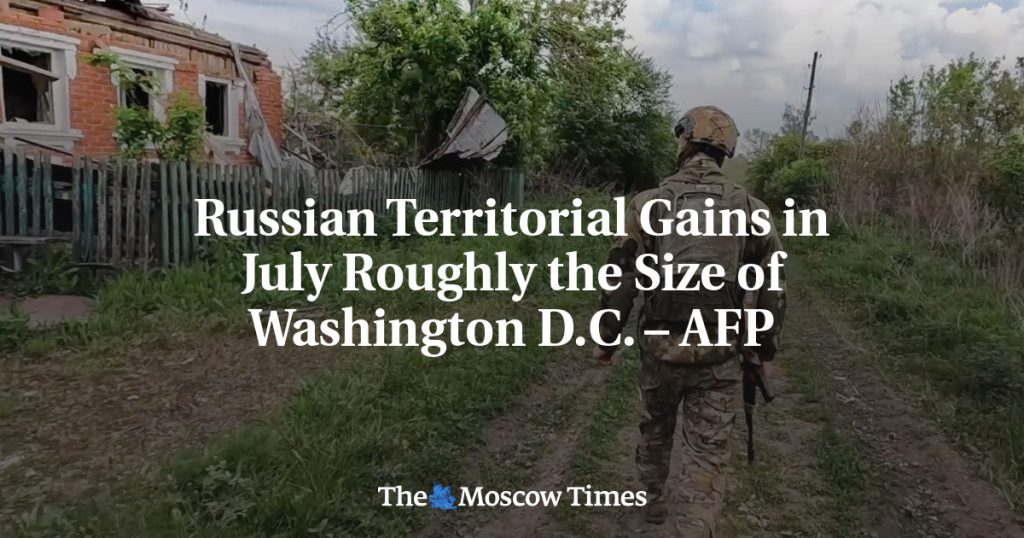In July, Moscow’s forces continued to solidify their territorial gains in eastern Ukraine, taking control of almost 200 square kilometers of land. This is a noticeable increase compared to the previous month but a slowdown compared to the major gains made in May when the Russian military launched a surprise ground offensive in the northeastern Kharkiv region. In May, the army seized 449 square kilometers of land, with an average of 14.5 square kilometers claimed each day. These were the most significant gains since Putin ordered the full-scale invasion of Ukraine in February 2022. Despite the gains made in 2022, the Russian military has not achieved a major breakthrough, facing mounting battlefield losses and a decrease in willing fighters.
Overall, Moscow has taken 1,246 square kilometers of Ukrainian territory since the beginning of the year, which is significantly higher than the 584 square kilometers seized in 2023. This shows the continued aggression by Russian forces in their attempts to control more territory in Ukraine. However, despite their efforts, they have not been able to make significant strides due to the challenges they face on the ground. The increase in territorial gains in July demonstrates the ongoing conflict and the battle for control in eastern Ukraine between Russian forces and Ukrainian defenders who are resisting occupation.
The Russian military’s aggressive actions in Ukraine have led to significant territorial gains, but they have also faced setbacks, including mounting battlefield losses and a decrease in the number of fighters willing to engage in combat. This has made it difficult for Moscow to achieve a major breakthrough in the conflict. The continued aggression by Russian forces in Ukraine has drawn international condemnation and sparked fears of a larger regional conflict. The situation remains volatile as Ukrainian defenders continue to resist occupation, and the conflict shows no signs of abating.
The conflict in eastern Ukraine has had profound humanitarian consequences, with thousands of people displaced and in need of assistance. The ongoing violence has taken a toll on civilians, with reports of civilian casualties and violations of human rights. The international community has called for a peaceful resolution to the conflict and for all parties to respect international law. The situation in Ukraine remains a key focus of international attention as efforts to bring about a peaceful resolution continue.
The Moscow Times, a leading independent news outlet in Russia, has faced challenges in recent times, with authorities labeling them as “undesirable” and “foreign agents.” This has put their staff at risk of persecution and has been seen as an attempt to silence independent journalism in Russia. The journalists at The Moscow Times have refused to be silenced and continue to strive to provide accurate and unbiased reporting on Russia. They rely on the support of their readers to continue their work and defend open, independent journalism in the face of repression. Support from readers is crucial in ensuring the continuation of independent journalism in Russia and upholding the values of press freedom and democracy.
Despite the challenges faced by independent journalists in Russia, organizations like The Moscow Times continue to provide valuable insights and reporting on critical issues, including the conflict in Ukraine. The work of independent journalists is crucial in providing objective information to the public and holding those in power accountable. The efforts to silence independent journalism in Russia highlight the importance of supporting organizations like The Moscow Times and standing up for press freedom. By supporting independent journalism, individuals can help ensure that accurate and unbiased reporting continues to be available to the public, even in the face of challenges and repression.















